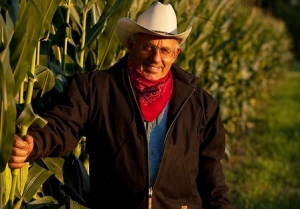 Climate change is wreaking havoc all over the globe, causing droughts in some areas and floods in others, and scientist all over the world are trying to come up with sustainable methods of combatting this threat and ensuring that everyone has access to clean water.
Climate change is wreaking havoc all over the globe, causing droughts in some areas and floods in others, and scientist all over the world are trying to come up with sustainable methods of combatting this threat and ensuring that everyone has access to clean water.
Without water for drinking, agricultural enterprises, energy, transportation, and personal hygiene, society as we know it would cease to exist – humanity would cease to exist.
Do Farmers Hold the Key to Reducing the Climate Change Threat?
A new study conducted by the International Fund for Agricultural Development ( IFAD), and the CGIAR Research Program on Climate Change, Agriculture and Food Security (CCAFS), Africa’s rural farmers could reduce carbon emissions, and that by helping them to adapt to the impacts of climate change, we could significantly reduce greenhouse gas emissions.
According to the report, smallholder farmers are fundamental in solving climate change threats and food security challenges. The report further states that farmers can reduce agriculture’s carbon footprint, restore degraded ecosystems and still feed a growing plant effectively.
According to Eva Wollenberg, one of the authors of the CGIAR report, We believe the potential would be about one giga-ton of CO-2 equivalent per year for all of agriculture. And if we estimate that about one-third of emissions come from small-holders now, we would then extrapolate to say that about point-three giga-tons would be possible. But that is a very rough estimate based both on population numbers that come from a variety of different sources – modelling that relies on many assumptions – and so these numbers need to be treated with caution.
[Source: VOA News]
The secret to reducing emission means ascertaining the balance of reducing greenhouse gas emissions through irrigation and draining the fields at the appropriate times, similar to what is done in the rice paddies of the Mekong Delta, but this is more of a challenge as the rainfall in Africa is more erratic.
The emissions that the study concentrated on were mainly in East Africa, where approximately 80% of the emissions were from livestock. Possible solutions include zero grazing, which means improving the feed, and enabling livestock to feed in one spot instead of grazing freely. Enabling better feeding throughout the dry season would ensure more even and better production throughout the year.
These methods would not only improve overall productivity, particularly of cattle, but would also reduce emissions as improved feeding would reduce the dry digestible matter which would reduce the methane gas that cattle emit.
Get an office water cooler from Living-Water in London. Read our water cooler blog for news and articles about the water industry.





